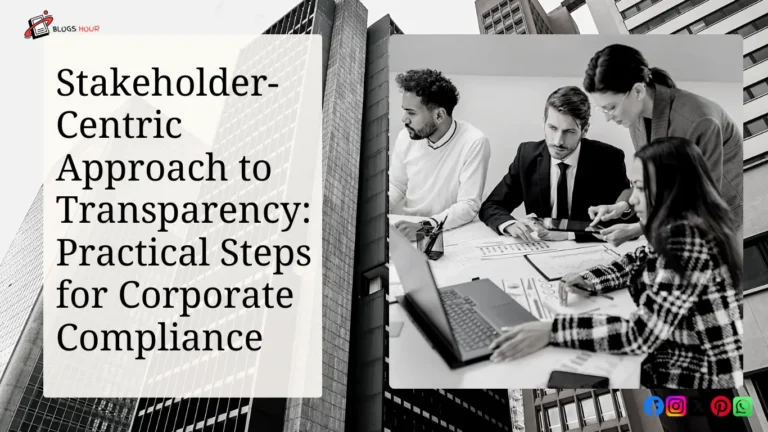Securities and shareholder litigation represent one of the most diverse areas of law court, where investors seek redress for wrongful acts done in the commercial marketplace. It delves into a wide range of controversies, including issues in fraudulent activities of corporate and accounting practices or violation of fiduciary duties by corporate management. Key objectives of this lawsuit include holding individuals and companies accountable for their deeds, protecting the rights of injured investors, and preserving the integrity of the financial system. These three elements, along with the active pursuit of crime cases and accountability, make protection and shareholder lawsuits a great complement to enhancing transparency and trust in investment and finance.
The Litigation Process: A Step-by-Step Guide
Securities litigation is generally a daunting task that involves a series of complex and sequential procedures requiring sound legal comprehension. Initially, the injured party files a legal complaint which triggers a series of pleadings where the parties involved express their cases. A stage that is common like many others but may be complex in its dimensions is the disclosure stage involving a mutual exchange of significant information that may turn out to be pivotal in the determination of the case.
Pre-trial motions such as motion to dismiss and motion for summary judgment proclaim the genesis in terms of legal boundary before trial – however, not every case goes to such extent. Fund lots of the cases are settled through settlement negotiations saving both the parties the risks and the exposure of the entire trial. In those cases that will be brought to trial presenting evidence and expert witnesses becomes most helpful when it comes to persuading the judge or jury. This last phase of the case builds up to the calling of a verdict which might just be the start of a lengthy appeal process.
Securities fraud refers to a range of illegitimate activities in which stockholders or companies are scammed. The realm of securities fraud includes things like the use of insider information and false investing activities. Such disputes often have substantial relevance for a person’s investment and relate to decisions made in the course of mergers and persons in charge violating their fiduciary duty. This type of case is very important because the outcome can affect a person’s wealth and the confidence of the public in the securities market.
Assessing the Function of Regulators
Securities and trade commissions around the globe are assigned the important task of enforcing the rules of the financial markets. The role of these regulatory bodies is to ensure that there is fairness and transparency so that companies do not undertake activities that are detrimental to their investors, or the economy as a whole.
These institutions are always active in the businesses of looking into complaints of misconduct in market activities, and when necessary, taking disciplinary action against offenders of securities laws. They serve as both a deterrent and a means of punishment and ensure all players in the market understand that it is critically important to adhere to law-abiding business principles.
Roadblocks in Securities Litigation: How to Overcome the Challenges
The legal process in a securities class action may take forever to fight a case even before it is heard. Strenuous arguing frameworks, substantial disclosure requirements, and the complex nature of monetary transactions are just a few of the challenges encountered. Litigants have to invoke serious charges that pass the standard of proof to proceed with their case.
On the other hand, defendants seek to exploit the gaps presented in these claims and dismiss the case entirely. Subject matter experts are important stakeholders who lend their legal voices to enhance the business art. Negotiation for settlement provides an option to escape the risks associated with the trial but requires intense negotiation to achieve a compromise acceptable to all parties concerned.
How Shareholders Can Safeguard Their Interests
To protect the value of their investments as well as enhance corporate accountability, shareholders ought to be vigilant at all times. In all cases, they ought to employ due diligence by creating one’s role in the corporate context, attending the AGMs, and participating in corporate governance. Bringing forth or joining lawsuits if need be can be a testament to the collective strength and the effectiveness of the action in rectifying the corporate misconduct.
Case Studies: What Did We Learn from High-Profile Litigations?
When looking at some of the notable examples of protection claim cases, one sees several positives, especially the fact that market players need to abide by the law as well as moral regulations. And every case whether it ends in settlement or judgment raises such perplexing questions as what is the conceptual framework and range of outcomes that can come out of it?
Past evidence concerning corporate collapses as well as present challenges faced by organizations in the automobile industry show that sound corporate governance and compliance with the relevant securities laws are crucial. When looking at these cases, stakeholders can equip themselves with knowledge of booby traps and an insight into the importance of a transparent and just market system.
The Future of the Disputes Relevant to the Securities and Shareholders
Globalization, fast industrial development, and changing regulatory environments will all contribute to the development of securities cases in the future. The conventional understanding of securities is also challenged by new forms of investment vehicles such as digital currencies which at times have clear legal status, other times lack clear legal status. This brings new challenges for regulators and litigators. As legal precedents emerge, they will shape the contours of future litigation environments. In this environment, investor protection and justice innovation will compete with each other in the broader context of a globalized economy.




